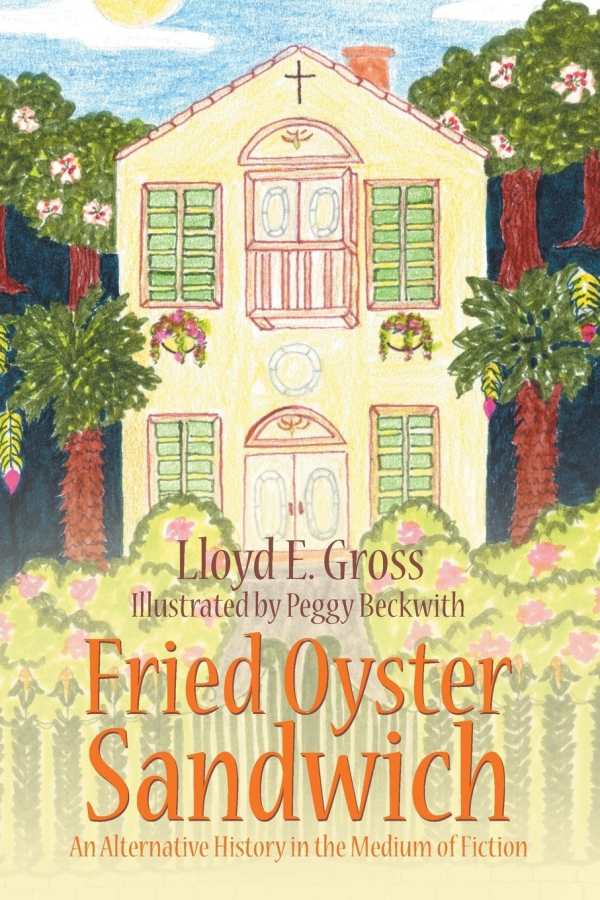Fried Oyster Sandwich
An Alternative History in the Medium of Fiction
Fried Oyster Sandwich is an entertaining account of lasting love.
In Lloyd E. Gross’s alternative historical novel Fried Oyster Sandwich, the confederacy won. The Kaufmann family of New Orleans is at the center of the multigenerational tale. With its a curious mix of Lutheranism, local politics, gastronomic delights, and young love, this unusual book is an earnest tribute to a distinctive, storied locale.
Spanning from 1909 to 1977, the story breezes through the years as a convivial account of everyday life. It begins with Eric and Stephanie, a young married couple; their story is followed by that of their son, Henry, and his friend Renee. Their adolescent relationship unfolds in brisk encounters, and blooms into marriage and parenthood.
The book focuses last on Henry and Renee’s son, Martin, and his love, Lisa. The style is thickly nostalgic, even cinematic, with developments led by meet-cutes, bold rescues, and witty banter in dialogue-heavy scenes. Characters are established primarily through such movements; their individual traits are otherwise broadly drawn. Action takes precedence over inner reflections.
In this lighthearted work, the major themes are friendship, courtship, and marriage, even through serious historical moments like the stock-market crash of 1929, which are incidental in the text. Outside events are conveyed through lengthy, news-centered conversations, especially with the characters who work at a radio station. Such conversations are often unexpected, and include forays into the affairs of European royalty, Mexico’s news, and a presidential election. While these events beyond New Orleans’s borders sometimes reflect the concerns of the South, they serve more as background than as pivotal plot points.
The story’s primary draw is its clear affection for a bygone era. Here, chivalry is still highly valued. Friends are regarded as family. Loyalties persist across decades.
Also within the realm of this novel, women characters are given sure footing and a prominent voice, particularly through Stephanie’s leadership in the Pelican Party. Their activity tilts toward familiar flirtations and feminine games, but both are placed in the context of youths testing the waters of their new relationships.
The Kaufmanns and their neighbors seem to be a privileged cast. The battles fought to arrive at a separate South––which are explained in an appendix—remain distant. Characters are introduced with next-to-no conflict. The book’s trajectory is idyllic, and its twin strands of an alternative history and a close-knit family do not entirely converge.
Fried Oyster Sandwich is an entertaining account of lasting love. Through its characters’ easy camaraderie and rites of passage, an appealing community unfolds.
Reviewed by
Karen Rigby
Disclosure: This article is not an endorsement, but a review. The publisher of this book provided free copies of the book and paid a small fee to have their book reviewed by a professional reviewer. Foreword Reviews and Clarion Reviews make no guarantee that the publisher will receive a positive review. Foreword Magazine, Inc. is disclosing this in accordance with the Federal Trade Commission’s 16 CFR, Part 255.

